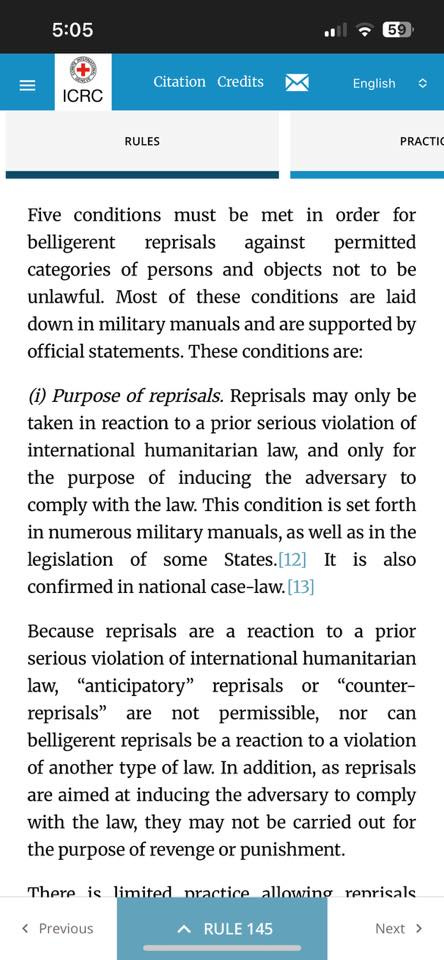He is a people that rises like a lioness, and lifts himself up like a lion.” (Numbers 23:24)
Israel’s attack on Iran which we discussed briefly in our previous article is now in its tenth day. The initial euphoria which greeted Israel’s demonstration of military power was tempered over the following days by Iranian ballistic missile attacks on the Israeli homeland which have killed 25 Israelis so far. All reported deaths are of civilians killed in their homes or on Israel’s streets.
Over Shabbat, the landscape shifted dramatically when the United States joined Israel’s offensive by using their B2 Bombers and their largest conventional bombs to inflict damage on three of Iran’s nuclear sites (Fordo, Esfahan and Natanz).
Image: Donald Trump announces US attacks on Iranian nuclear sites
During the past week we have followed with interest the way that the story of Israel’s attack on Iran has been reported in the media and the way it is received by the people we interact with on Social Media.
We have written frequently about the systemic bias which affects the reporting on the conflict in Gaza. When it comes to Israel and Iran, we can see differences as well as common elements.
Checking in with some of our Previous Interlocutors
On the night of June 12, Rex Brynan, Professor of Political Science at McGill University, and our Facebook friend, posted an announcement on his Facebook page:
Israel attacks Iran, (undoubtedly with a US green or amber light).
We replied with our own first take on what was happening.
I think you are right. The US helped Israel to achieve surprise by pursuing talks long after it was clear nothing would come of it.
The US is denying it agreed to the attack in order to give Iran a reason not to attack their forces in the region.
The US appears to have known for at least a day that the attack was coming and I saw reports they warned their partners in the region.
The Israelis seem to have known the locations of many top Iranian military leaders and to have killed them with precisely targeted attacks.
This was a preemptive strike which targeted the Iranian ability to retaliate as well as nuclear weapons development sites.
Professor Brynen replied with an answer that left us scratching our head:
David Roytenberg It’s not a preemptive attack (since there is no reason to believe that Iran was planning a major attack of any sort on Israel)—it’s a preventative attack (which isn’t permissible, not that Israel cares). It should be remembered that Iran had already agreed to forgo nuclear weapons under the JCPOA and was in compliance—until the Trump Administration tore it up (at Netanyahu’s urging) and the feckless Biden Administration was unable to close a new deal.
We make no claims to being an expert in international law, but we were surprised to see that the issue that was top of mind with Professor Brynen was the legality of Israel’s move. His comment was liked by 14 people including Mira Sucharov, a mutual Facebook friend. We have written about Mira in these columns in the past.
Our response addressed two issues. The first is that we are always anticipating an attack from Iran. This is based on their behaviour over a long period of time. The ongoing war in Gaza is the result of an attack by Iran. The claim of “no evidence” seemed like willful blindness to us.
Our second point addressed the claim that Israel’s action was in some way contrary to international law. We’ve spent a lot of time talking about the arguments about Israel’s conduct in Gaza, but surely the situation vis-a-vis Iran should be clear, we thought. We responded to Rex Brynan’s comment:
Rex Brynen I am less sanguine than you. Iranian leaders and proxies have stated their goal of destroying Israel many times. When someone repeatedly threatens you, and spends decades organizing violence against you, it is prudent to believe that they mean what they say.
and:
Rex Brynen wrote “there is no reason to believe that Iran was planning a major attack of any sort on Israel”
Iran staged a major attack on Israel on October 7, 2023 from both Gaza and Lebanon. They fired two large barrages of ballistic missiles at Israel in 2024.
The war is ongoing. I don’t think Israel is obliged to wait for an Iranian attack each time they retaliate. Israel chose the place and time of this particular strike, which seems to have been extraordinarily effective.
It seems to me your take on international law when it comes to Israel never seems to view any Israeli action as justified.
As is so often the case when the dogma, that Israel is always in the wrong when it acts against its enemies, is questioned, there was no response to this.
We got another chance to address the question when Mira Sucharov made her own post on the subject three days later.
The same claim made by Rex Brynan that “there is no reason to believe” Iran was planning a major attack on Israel was also made by Mira:
1. Israel is calling its attack a pre-emptive strike. Given that no credible evidence has been produced that Iran was poised to strike Israel, this is patently false. Instead, it's a preventive strike, aimed at preventing Iran from gaining a nuke (recall that Israel is widely acknowledged to have many, though it has never admitted this publicly). Preventive strikes are not permissible under international law.
We tried again to question the premise that “there is no evidence Iran was poised to strike” as well as the claim that striking without such evidence is illegal
You are repeating Rex Brynen’s claim that Israel is engaging in something illegal because “there is no credible evidence that Iran was poised to strike Israel.”
As I wrote to him, Iran has been striking Israel for decades through the means it thought was most effective. Under what law is Israel required to anticipate the next Iranian strike before striking back?
The October 7 obscenities had Iran’s fingerprints all over them. Do you really believe Israelis shouldn’t be able to respond to those atrocities at a time and place and in a manner of their choosing?
We hoped for a response to these points, but we were again disappointed:
David Roytenberg under international law, revenge attacks are forbidden. Reprisals are authorized in only rare circumstances. (The legal doctrine is clear on this.) As for self-defense, there is no credible self-defense argument that can be made for what Israel is doing. (Ps Rex and I analyze the data similarly. I am not his parrot.)
While we were not advocating revenge, but rather trying to show that the war was ongoing, we were disappointed that there was no support offered for the claim that “there is no evidence that Iran was poised to attack”, nor was there any clarification of why an attack on an enemy that has been at war with you for decades is illegal, whatever the stated motive. for the attack.
Nevertheless we tried again to return the conversation to the subject we raised in our initial comment.
Mira Sucharov I am not claiming Israel is taking revenge. I am claiming Iran is at war with Israel. They have an undisguised ambition to wipe Israel off the map. They have acted repeatedly, for many years through proxies and through their own agents to advance that goal. None of that is legal if they are not at war with Israel.
As long as that war is ongoing, attacks by Israel on Iran should be legal as long as they are directed at legitimate military targets. The Iranian nuclear weapons program is a legal target in my judgment, acknowledging that neither one of us is a lawyer.
and:
Mira Sucharov Israel’s actions against Iran are not a reprisal. They are an attempt to eliminate the threat posed by Iran to Israel’s existence. This is strategic, not tactical and had to happen eventually regardless of Gaza. I mention Gaza to show that the war with Iran is ongoing, not to justify the particular measures Israel is taking now to destroy the nuclear program.
The reprisal comment is a straw man argument. Nobody here mentioned reprisals except you.
Sadly, this attempt to pursue the question of how military action against a legitimate target directed at an enemy that has been a war with you for decades is somehow illegal, was again ignored. No answer was forthcoming.
In the same thread, a mutual Facebook friend, David Romano chimed in on Mira’s pivot to talk of revenge and reprisal.
Mira Sucharov Where are you getting this about reprisals, Mira (never mind the notion that Israel has no self defense argument against Iran)? Reprisals are usually defined in international law as something that would normally be illegal, but are permitted (with limitations as to the target) given the other party's prior violation of international law. The reprisal doctrine, for instance, was specifically invoked when the US launched attacks on Syria in 2017 following Assad's use of chemical weapons. Is this Cracker Jack International Law 101 or something? You could argue that what Israel is doing does not fit the reprisal doctrine, but that was not what you just said.
Mira’s response again seems not to address the issue:
David Romano just one bit here from the ICRC elaborates my point about reprisals: the fact that Iran funds Hamas and Hezbollah does not permit Israel to attack Iran as it is doing. (PS I edited my earlier note to clarify as well.)
Image: Screen grab posted by Mira on the subject of reprisals in international law
It is not clear how the quoted passage about anticipatory reprisals is relevant since the attacks by Hamas on Israel are ongoing and 50 Israelis continue to be held captive in defiance of the Security Council as well as international law.
In any case, the question of the ongoing war with Iran justifying Israeli measures to curb their aggression simply went unaddressed. The claim that Iran’s support of Hezbollah and Hamas does not justify retaliation by Israel is stated, but no argument in support of the claim is offered by Mira.
Finally as we have learned from Professor of Law Brian L. Cox, the authority of the ICRC to determine international law is not established anywhere and is simply a role they have taken on. Some of their opinions on the laws of war were contradicted by Professor Cox, when he spoke to us in January. Please see our earlier article on the views of this legal expert on this and other important matters here:
America Joins the Fight
After Shabbat we found numerous messages waiting for us about the American move to attack the Iranian nuclear sites. Turning on television we caught President Trump’s brief statement and followed the commentary on both the Israeli network i24 as well as on CNN. Trump justified the attack by the US on Iran’s nuclear sites with an argument similar to the one we used above, in our exchanges with Rex Brynan and Mira Sucharov. Trump said that since 1979 Iran had been working to harm Americans and that over a thousand Americans have died as a result of hostile action by Iran or its agents. He said that America would no longer tolerate this, and that Iran now had a choice to make between tragedy or peace.
In contrast to the skepticism expressed by Mira Sucharov and Rex Brynan, the commentators speaking on the Israeli network I24 all seem to take it as a given that Israel is in an ongoing war with Iran, an enemy which is dedicated to Israel’s destruction. The legality of Israel’s measures against Iran are not in question.
On CNN last night, retired General Wesley Clark chimed in that, assuming that the US attacks have been as successful as claimed, the removal of the imminent threat of a nuclear Iran, freed Israel from a shadow that had hung over it for many years. He expressed hope that a potential new era, in which Iran is not constantly working to harm Israel, may unlock opportunities for broader regional peace, and a more hopeful future for the Palestinians, as well as an end to the existential threat to Israel.
Earlier in the week, we were also pleased to read that the German Chancellor Merz had expressed solidarity with Israel’s actions: Merz: 'Israel is doing the dirty work for all of us by striking Iran, lacks necessary weapons'. It is refreshing when someone expresses support for Israel’s aims without insisting that the way Israel is doing it is completely unacceptable.
Sadly Canada’s Prime Minister Carney did not do quite as well: While insisting that Iran must not be allowed to obtain a nuclear weapon he called for “de-escalation” and a return to the bargaining table, something that Iran has said today that it has no interest in doing. Carney calls for diplomatic resolution after U.S. airstrikes on Iran.
Canada’s opposition leader offered more clarity:
Conservative Party Leader Pierre Poilievre said allowing Iran to get a nuclear weapon would have been "reckless" and that actions by the U.S. and Israel to stop Iran's nuclear proliferation are justified.
Poilievre said the federal government must protect Canadians from spillover violence in Canada and take action to stop "intimidation and foreign interference by the Iranian regime targeting Canada's Jewish and Persian communities."
Waiting for what Comes Next
The American bombings of Iran over night were followed by two relatively large missile attacks on Israel which injured 84 people. Drones were launched as well, but Iranian drones have been almost entirely ineffective in harming Israel during the past ten days.
Many people in the pro-Israel community were celebrating last night, though some were alarmed to see America getting involved.
The degree to which the Iranian nuclear enrichment sites were destroyed was still unclear on Sunday evening. Another concern was the location of a large quantity of highly enriched uranium, sufficient for the construction of a number of nuclear bombs. Iran claimed that the enriched uranium had been removed from the Fordo nuclear site before it was attacked.
US Vice President Vance appeared to confirm that in an interview today.
Speculation on Iran’s possible response was rife today. Possibilities discussed include missile attacks on US military bases in the region, a rush to produce and test a nuclear weapon with the means they may already have at hand, and terrorist attacks on the US homeland.
The Iranian foreign minister announced that Iran would never give up its right to enrich uranium before heading to Moscow for discussions. The former President of Russia, Dmitriy Medvedev said that Russia might give nuclear weapons to Iran. The Iranian Parliament passed a measure calling for closing the Strait of Hormuz, which could stop oil exports from the Persian Gulf, including exports by Saudi Arabia, the United Arab Emirates and Kuwait.
As of the time this article is published there are no reports of any Iranian reprisals against American interests. Meanwhile Israel continues to attack Iranian missile launchers, military leaders, and military production sites in Iran.
We will continue to cover the story and its impact on Israel and Canadian Jews in the days to come.
If you are a paid subscriber you can leave a comment.
If not, why not upgrade today to support our work?
If you would rather make a one time contribution you can buy me a coffee.
Thank you to everyone for reading Canadian Zionist Forum.








Of course they didn't respond. The Israel bashers are at best ignorant sheep and at worst malevolent Jew haters and they cannot do anything but recite their baloney plattitudes. They fled from you in the face of facts. There was a real question as to the extent of the influence of these people over President Trump. Thank God that argument has been put to bed. I pray for a miracle and real regime change that releases the Persian people from their chains and frees the world from this 40 year menace.